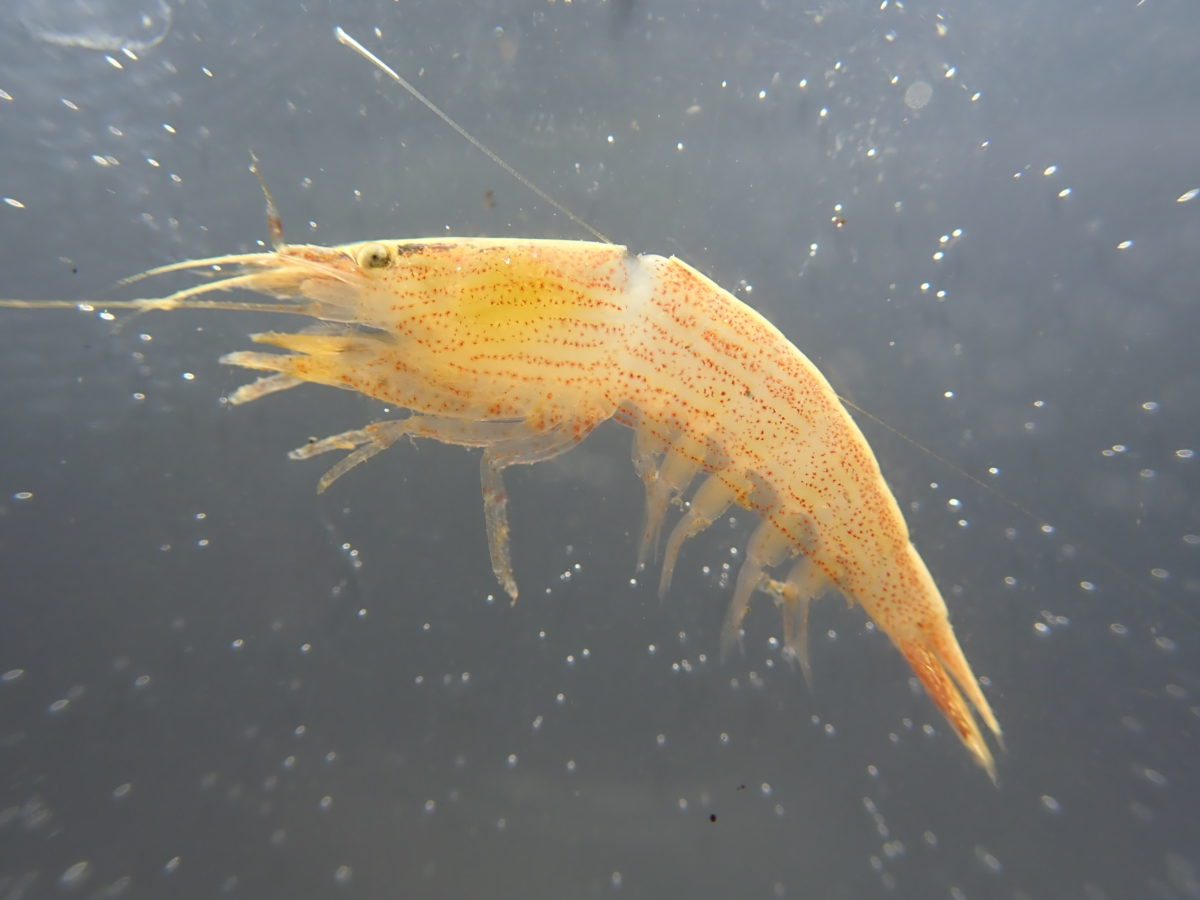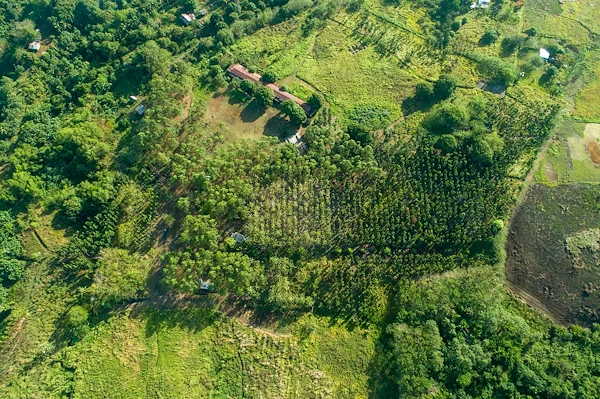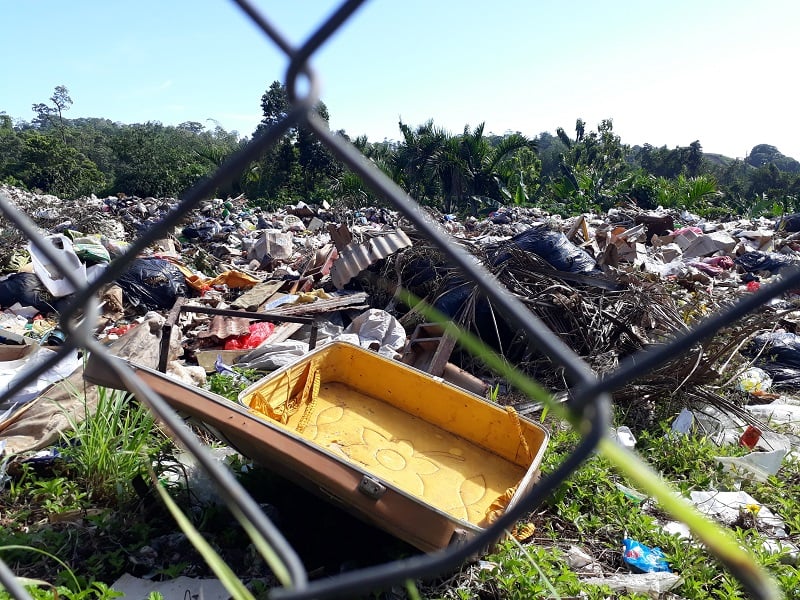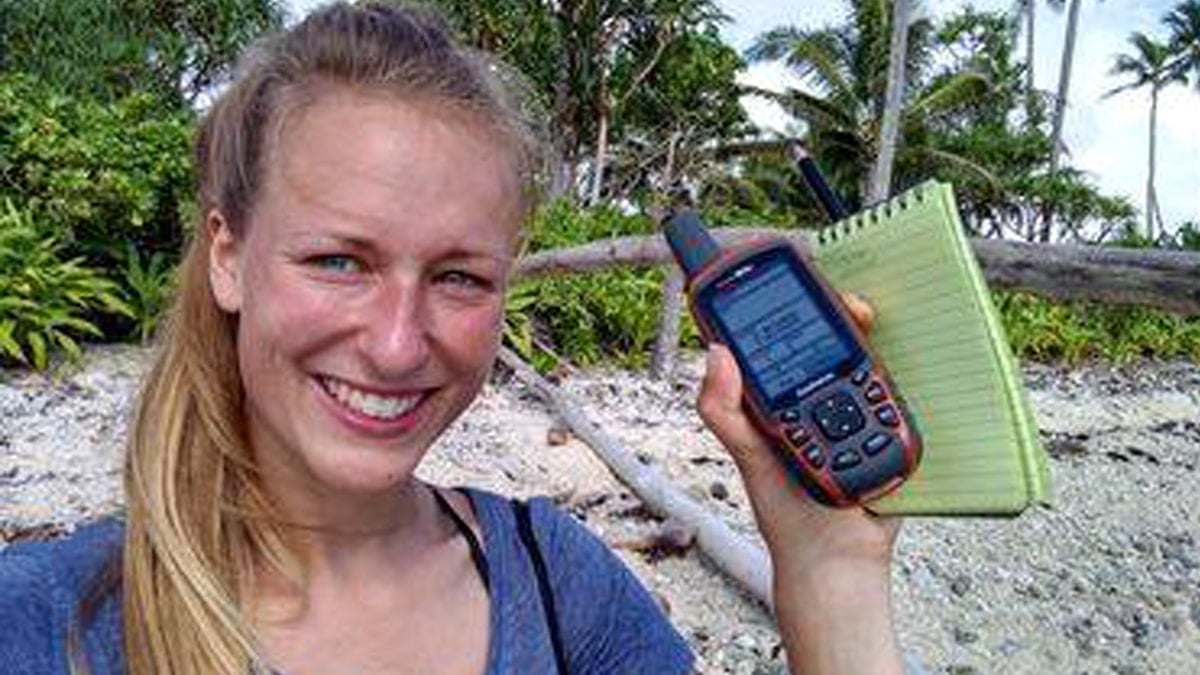New species of shrimps discovered in the Solomon Islands add a record of its rich biodiversity whilst pollution from logging threatens their environment
A log carrier vessel anchors few kilometres offshore on Rakata River mouth on Isabel Province in the Solomon Islands in April 2021.
Upstream an expedition by a group of French and local biologists had discovered at least two new freshwater shrimps in 2019 which was new to science.
Rakata River, in the north-western end of Santa Isabel Island is infested with freshwater water crocodiles. In fact, a young soccer player was attacked and swallowed by a crocodile just a few kilometres upstream from the Rakata river mouth.
The new shrimps were found further upstream away from the crocodile infested brownish water.
Apart from the crocodiles, Rakata River has been disturbed by logging activities. A bridge made of logs is visible when I made the trip upstream on an outboard motor-powered canoe, passing the location where 13-year-old Kitchner Damutalau was attacked by a huge crocodile in October 2020.
The trip was to get a sense of the natural habitats where the freshwater shrimps were discovered. Sadly enough, it didn’t take me long to discover the dangers these freshwater shrimps and fish face on Rakata River, especially from the impacts of logging.
“Trees upstream have all been logged and now the loggers have crossed the river to the western side,” Kingsley Tugumana, my tour guide told me.
In fact, logging entered Isabel Province around the vicinity of Rakata River, just few kilometres east of the river, where the Suavanao airstrip is now located.
“I came with the logging company when it first entered Isabel Province from the Western Province in early 1990s,” said Tugumana.
He had accompanied the scientists who discovered the freshwater shrimps in 2019 and is a resident of nearby Baolo village.
Discovery
One of the scientists on the expedition Valentin de Mazancourt said an undescribed species of Macrobrachium (large freshwater shrimp) was collected in the Rakata River, but all the other shrimps belonged to species already known.
Local biologist David Boseto from Ecological Solutions Solomon Islands (ESSI), who was also part of the expedition to Rakata River, said there were only two new species of shrimps Caridina intermedia and Caridina barakoma that were found in the river.
The two shrimps are among 11 which are new to science described from the Solomon Islands out of 24 species reported in total.
Caridina barakoma is a new species named after a village on Vella Lavella Island where it was first discovered in 2016 in Vala Kadju River. It is endemic to Solomon Islands and was found elsewhere in Choiseul, Kolombangara, Vella Lavella, Isabel and Guadalcanal.
The second shrimp discovered on Rakata River Caridina intermedia had also been found on Choiseul, Kolombangara, Vella Lavella, Isabel and New Britain in Papua New Guinea.
In an academic journal ‘Solomon’s Gold Mine: Description or redescription of 24 species of Caridina (Crustacea: Decapoda: Atyidae) freshwater shrimps from the Solomon Islands, including 11 new species’, co-author Valentin de Mazancourt stated the shrimps were found on six islands namely Choiseul, Isabel, Malaita, Vella Lavella, Ranongga and Kolombangara.
“The shrimps live in virtually all the rivers on the six islands,” he added.
Out of the 11 new shrimps found, six are endemic to Solomon Islands namely Caridina barakoma, Caridina choiseul, Caridina turipi, Caridina piokerai, Caridina nona and Caridina sikipozo.
“Indeed, among our 24 species of the Solomon Islands, 12 are shared with Indonesia, 10 with Vanuatu and 6 with Papua New Guinea. On the other hand, only 4 species are shared with Australia and 3 with New Caledonia,” de Mazancourt said.
The regional diversity of freshwater shrimps or Caridina according to the authors of ‘Solomons Gold Mine’ exists in the Indo-Pacific.
Authors the journal stated that when focusing on endemic species of Caridina, the maximum diversity occurs around the Coral Triangle between the Philippines, Indonesia, and Papua-New Guinea.
“According to our study, the Solomon Archipelago belongs to this maximum diversity area.”
This makes Solomon Islands a hotspot for a diversity of freshwater shrimps which ‘remains poorly known’ according to the ‘Solomons Gold Mine’ journal.
Deputy Director of Conservation in the Solomon Islands Ministry of Environment, Climate Change, Disaster Management and Meteorology (MECDM) Mr. Josef Hurutarau said the was an important finding which will contribute to the understanding and increase knowledge of local biodiversity especially life under freshwater in Solomon Islands.
Wilson Eta, Isabel Provincial Environment and Climate Change Officer said the discovery of the shrimps on Rakata River shows the island has an abundance of freshwater organisms.
Shrimps and the Environment
De Mazancourt from French Ichthyological Society (SFI), based at the Muséum National d’Histoire Naturelle (MNHN), Paris, France, explained that shrimps are the cleaners of the rivers by sweeping the substrate.
“They limit the accumulation of organic matter and allow it to circulate in the food web when they are being eaten by predators such as fish or birds.
He said shrimps play a significant role to the freshwater ecology and the environment in general.
“As without them, the rivers would have an excess of organic matter that could lead to eutrophication, with proliferation of algae that often asphyxiate the environment and cause the disposition of many animals, fish in particular but also their predators.
De Mazancourt said the main threats to these shrimps are actually threats to their environment. And there are many for example, deforestation caused by mining or logging increases the soil erosion, which causes deposits of mud in the rivers which covers the biofilms that the shrimps eat and clogs their gills.
“Deforestation can also cause droughts because of changes in the local climate, and these shrimps cannot survive without water in the river. Since these shrimps migrate between the sea and the rivers, the construction of dams or bridges can also be a threat if it doesn’t leave a way for them to circumvent it and colonize the upstream of the river.”
De Mazancourt explained that all native freshwater species in Solomon are migratory species, and they spend a part of their life in the Pacific Ocean.
He said as the temperature will change, the direction of ocean currents will be modified and this will modify the distribution of all species in the Pacific islands.
“In rivers the increase of the temperature will change the distribution inside it and several species, living only in cool water, in altitude for example, will disappear.”
The eventual harsh habitat of the shrimps on rivers like Rakata and given the rate of logging in Solomon Islands is unsustainable, if continues will cause deforestation.
According to Global Witness Solomon Islands is one of the poorest nations in the Pacific region which is heavily dependent on the forestry sector and yet the country’s forests continue to disappear faster.
Solomon Islands exported more than 3 million cubic metres of logs in 2017, more than 19 times a conservative estimate of the annual sustainable harvest, according to Global Witness.
A recent report commissioned by the Solomon Islands’ Ministry of Finance suggested that if logging activities continue at their current pace, natural forests will be exhausted by 2036.
Satellite images by Global Witness show that logging roads in the Solomon Islands are twice as long as the Yangtze River in China who imports 82% of the logs the Solomon Islands exports.
On Isabel itself, the vicinity of Rakata River has been heavily logged which could easily destroys the habitat of shrimps and other freshwater fish on the river.
Benefits to custodians of rivers
Custodians of our rivers and streams often opted for logging than see the long-term benefit of our freshwater supply and the shrimps and fish that thrives on them.
There may not be direct economic benefits from protecting rivers and its inhabitants but shrimps endemic to Solomon Islands could be of some commercial values to the locality or people behind their discoveries.
Shrimps endemic to Solomon Islands are Caridina barakoma, Caridina choiseul, Caridina turipi, Caridina piokerai, Caridina nona and Caridina sikipozo.
“This provides visibility to the inhabitants of the area the shrimps were first discovered,” de Mazancourt said.
The list of endemic freshwater shrimps is not exhaustive and de Mazancourt noted that every fieldtrip allowed revealing at least one new species even when visiting the same island multiple times.
“Given that there are many different habitats, it is very likely that new species will be discovered in the future.”
He said the most important thing to protect these shrimps is to communicate about them.
“If people learn about their diversity and their importance to the environment, they will understand the importance of protecting them and their habitats.”
Furthermore, Deputy Director of Conservation Mr. Hurutarau said the discovery of the new shrimps add to Solomon Islands record of its rich biodiversity.
“I think this will bring prospect of more researches coming to Solomon Islands and investments for biodiversity conservation.”
Hurutarau said the Solomons Gold Mine report on the shrimps and freshwater fish must be made available to resources owners and communities who have consented to these studies.
He noted that shrimps are also source of food to other animals in their hierarchy and it would be interesting to understand if these can be easily breed as a source of protein and food security.
Protecting freshwater habitats
Deputy Director of Conservation Mr. Hurutarau said much as we would like to convince custodians of their areas hosting important habitats for certain unique species, the Solomon Islands Government and partners need to support them against threats like pollution from logging, overharvesting or disturbance from agriculture or irrigation.
“The Ministry can assist to facilitate those sites or land areas protected under the Protected Areas Act 2010,” Hurutarau added.
Although there are no specific activities targeting shrimp conservation at the moment, he said the ministry will continue to raise awareness on these new discoveries and ascertain their conservation status which will be helpful to allocate resources.
“We are aware that there are communities who are doing water resources conservation which can also assist toward shrimp conservation.
“Or even forest conservation programmes which cover aquatic sites (rivers and streams) can actually contribute to the whole other species conservation which exists within those sites.”
Isabel Provincial Environment and Climate Change Officer Mr. Eta said the usual practice in the province has been community-based conservations.
“We do not initiate them, but it is up to each landowning group or community to request our involvement, before we start to engage with them.
This ensures that it is community initiated and driven and has a high chance of sustained commitment by the community regardless of Eta’s effort to push for conservation.
He added that such scientific findings open up opportunities to work with resource owners to conserve their areas.
Eta said logging and other extractive developments will always be a challenge to conservation of resources in Solomon Islands where landowners opt for a more direct financial benefit than a long-term one.
“It takes lots of convincing and negotiation to strike a balance, otherwise those who support logging always wins. But we can always try,” he added.
What’s next?
The scientific research which led to the discovery of the shrimps is important and is needed to increase our knowledge of the existence and abundance of the many ecosystems in the archipelago says Isabel Provincial Environment and Climate Change Officer Mr. Eta.
“But it should not stop there; it should not be just academic; it should be able to be translated into meaningful outcomes.
“Researches like these should able to impact change; sadly, it is all academic and only raises the profile and status of those involved in that research in the academic science community.”
Eta said even the community of Kolopakisa, the nearest village to Rakata River does not even have an interest on the two shrimps being discovered in the river.
“That is what I meant that such researches need to have meaningful outcomes derived from it. What can we do with the academic knowledge?”
Eta said his office and The Nature Conservancy (TNC) has been involved with members of the Kolopakisa community in various undertakings including conservation activities.
He said his office is always open to interests from community and resource owners and he would welcome an interest by the community of Kolopakisa to conserve that freshwater environment of Rakata River.
“If it is initiated by the community then we will help them to achieve their interest for conservation.”
Eta said Rakata area was a Japanese army base during the Second World War in the Pacific so it has a historical and cultural significance. The cultural aspect of the river he referred to are the crocodiles which are revered with ancestral connections to the custodians of the river.
The significance of Rakata River historically and culturally is reasons enough to push for its protection and conservation.
“But the initiative and desire for conservation has to come from the communities themselves,” Eta added.
As my skipper manoeuvred the 40 horse-powered boat to exit the crocodile-infested Rakata river mouth out to the deep ocean, images of how the late Kitchner was specifically targeted by the reptile as he and his two friends crossed the river on that fateful October, kept replaying on my head.
It was as if the log carrier vessel anchoring offshore was waiting hungrily to snatch the remaining logs from the forests that are protecting Rakata River and its freshwater shrimps upstream.
This story was produced by Priestley Habru, published at The Island Sun on 29 August 2021.




